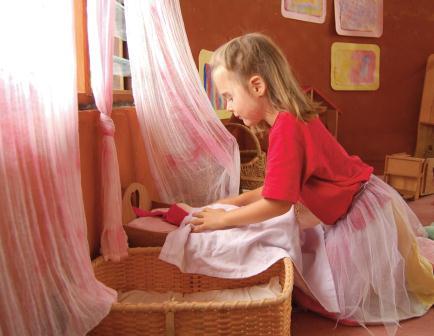This sweet article, written by a LifeWays caregiver, looks at ways to respond when young children ask, “why?” What a lovely reminder to all of us who spend time with young children! ~Faith
The Whys’ to the Wise, by Tamara Treviranus
As parents and caregivers, we have all experienced our little ones asking “why?”, which at times leads to a seemingly never ending stream of successive “ but why this…? Or why does that…?” (Has anyone ever tried to answer each one of these queries? Whew! Adults 0, children win!) Oftentimes, we are challenged to sort out the answer ourselves. “Momma, who is god? What will happen to me after I die?” and other thought provoking and soul expanding questions. Both children and adults learn a lot from these precious exchanges. I certainly at times feel quite humbled! For children, this can be a learning opportunity, a “teachable moment”, with regards to how our world works, yes, but also the foundation for the process of seeking and discovery.
When we as adults are asked “why” from a small child, sometimes it may seem challenging to come up with a very good answer. Is the response appropriate to their age and maturity level? Did I give too much or too little information? Was I too rushed to give a carefully thought out and warm response? I found it quite liberating to learn that we don’t in fact have to answer each successive “Why” with an age appropriate intellectual response. It IS important, however, that the quality of our response be given equal consideration as the content of our response.
“I wonder why that could be?” said with a smile and warm tone gives the child the humanness and warmth they are seeking, and it also leaves open the imagination and heartfelt experience of the “ thing in question”. An information based response is sometimes better suited for an older child, while the younger child may require a response that answers the need for attention, warmth, and an appreciation for the imagination and wonder of the world. This being said, I also suspect that when adults share their passion for a subject with lots of information and facts and figures, that though the facts and figures may be lost, the passion and kindred spirit of a shared interest is retained in the feeling life of the child.
When we as adults find ourselves seeking, what is the response we expect from our partners, our families, our community, our god? Seeking and discovery is a lifelong process that we hope to honor and encourage amongst our youngest members of our community. We hope that our children will both explore ideas on their own and that they also continue to ask us questions!
Tamara Treviranus is a caregiver at the LifeWays Center in Milwaukee, Wisconsin. This article was originally published in their newsletter, and can be found on their blog, http://lifewaysmilwaukee.blogspot.com/ . Thank you, Tamara!
